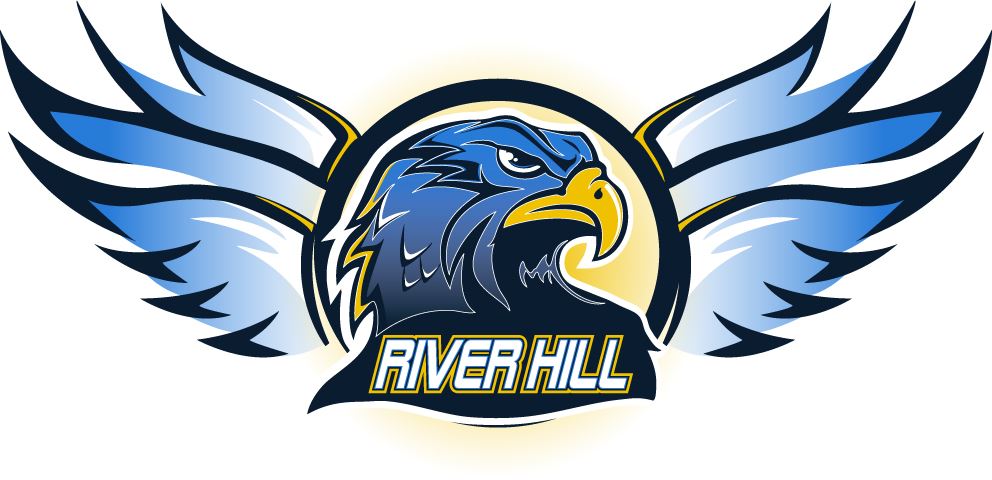By Benjamin Hong, Co-Editor in Chief
River Hill offers a wide variety of courses, covering virtually every academic and artistic discipline. In particular, the school offers a strong selection of elective courses, which allow students to invest time into and learn more about niche topics that may not be covered in core classes. Due to graduation requirements and other external concerns, many students have few remaining course slots for a large number of these courses, which means that selecting which ones to take should be a carefully thought-out process, one that weighs the pros and cons of these electives.
One such course is Music Technology, whose piano and album-laden room is situated across from the main gym. Taught by Mr. Richard McCready, the course teaches students the fundamentals of music production, guiding them to ultimately have a published portfolio of work by the end of the year. It provides a truly unique perspective on the world of music for any student. Mr. McCready compares the class to “learning about food from being a chef rather than being somebody that just eats the food all the time.” He encourages students interested in the course simply to “stop by. I’ve never had a single student who did not want to be here. Just give it a chance, and you might find something you absolutely love.”
The class is not limited to the realm of music but also encompasses the broader world of audio engineering. One major project that the class undertook this year was a compilation of children’s story narrations, supported by sound effects and background music. Mr. McCready described how the final product was presented to students in the Academic Life Skills (ALS) program, and “they absolutely loved it. They were able to see the book, digitized, and to hear it narrated, and to hear music with it. It was just a beautiful project.”
Another niche topic that River Hill offers is Forensic Science. Taught by Ms. Shelly Chamness, the course covers lab and field techniques used in the process of solving crimes, with a particular emphasis on murder cases. One of the highlights of the course is the incorporation of expert speakers. Past speakers of note that Ms. Chamness mentioned include “a professor from Towson who is a forensic anthropologist who was also a crime scene tech before she got her doctorate in forensic anthropology.” The professor “brought a full skeleton that they had found” and demonstrated methods of determining the age of the body, its original time period, and other details.
Ms. Chamness highly encouraged students to take the course, emphasizing its approachability by explaining that “it’s actually suitable for all levels. I have students that have taken all regular classes through high school, and I’ve had students that were in my AP bio class.” She also highlighted activities such as field trips as reasons to take the course, describing one in which the “fire chief for the whole state and the firemen and bomb squad show off an accelerant sniffing dog and the bomb squad gets out their specialized robot. Kids can even work the robot and they show you how the robot collects bombs.”
Taught by Ms. Amanda Brong, the Social Studies department offers the one-semester Law and the Citizen course, which focuses on examining various aspects of legal history and the law more generally, as well as the impacts it has on the lives of students. Ms. Brong described what makes the course special, stating, “The course is very student-driven and students give suggestions and input as to what we cover in different units. […] We spend more time on what they are interested in.”
Ms. Brong also teaches Sociology, a course that, as she describes it, examines “behavior patterns in groups, not individuals,” and tasks students to examine “social patterns and behavior by analyzing their own role and status in aspects of social institutions they are familiar with like school and family.” The semester-long course accomplishes this by integrating college-level introductory course content alongside topical pop culture elements that ensure the topic’s relevance is clear to all students.
Taught by Ms. Cristin Lauer, Anatomy and Physiology covers aspects of human and animal anatomy, incorporating a collaborative class structure with its various hands-on activities, highlights of which Ms. Lauer noted being “microscope work, dissection, and model building,” among other lab activities. However, one of the most exciting parts of the course that Ms. Lauer highlighted was the annual field trip to the Anatomy Gifts Registry in Severn, a nonprofit that allows for the donation of the dead to medical research. Lauer described it as “truly the most eye-opening experience to have a body in front of you as a visual of all the concepts you learn about.” Ms. Lauer herself uses these trips as personal opportunities to learn more about her subject, such as one year when she observed “a horseshoe kidney, which is where your kidneys fuse and literally look like a horseshoe.” To prospective students, Ms. Lauer emphasized that “all [students] find success and gain a lot from the course. […] But you certainly have to have an interest in the human body and learning about it.”
These courses are just a small sample of the diversity of opportunities River Hill provides. The breadth of the offerings may cause a paradox of choice for some; however, students should instead focus on making full use of the unique opportunities provided to explore interests and discover new passions. This is best captured in Mr. McCready’s words, which, while intended for his class, can also be applied to the many elective courses here: “Just come along and look, it’s a fun space, it’s a great subject.”

